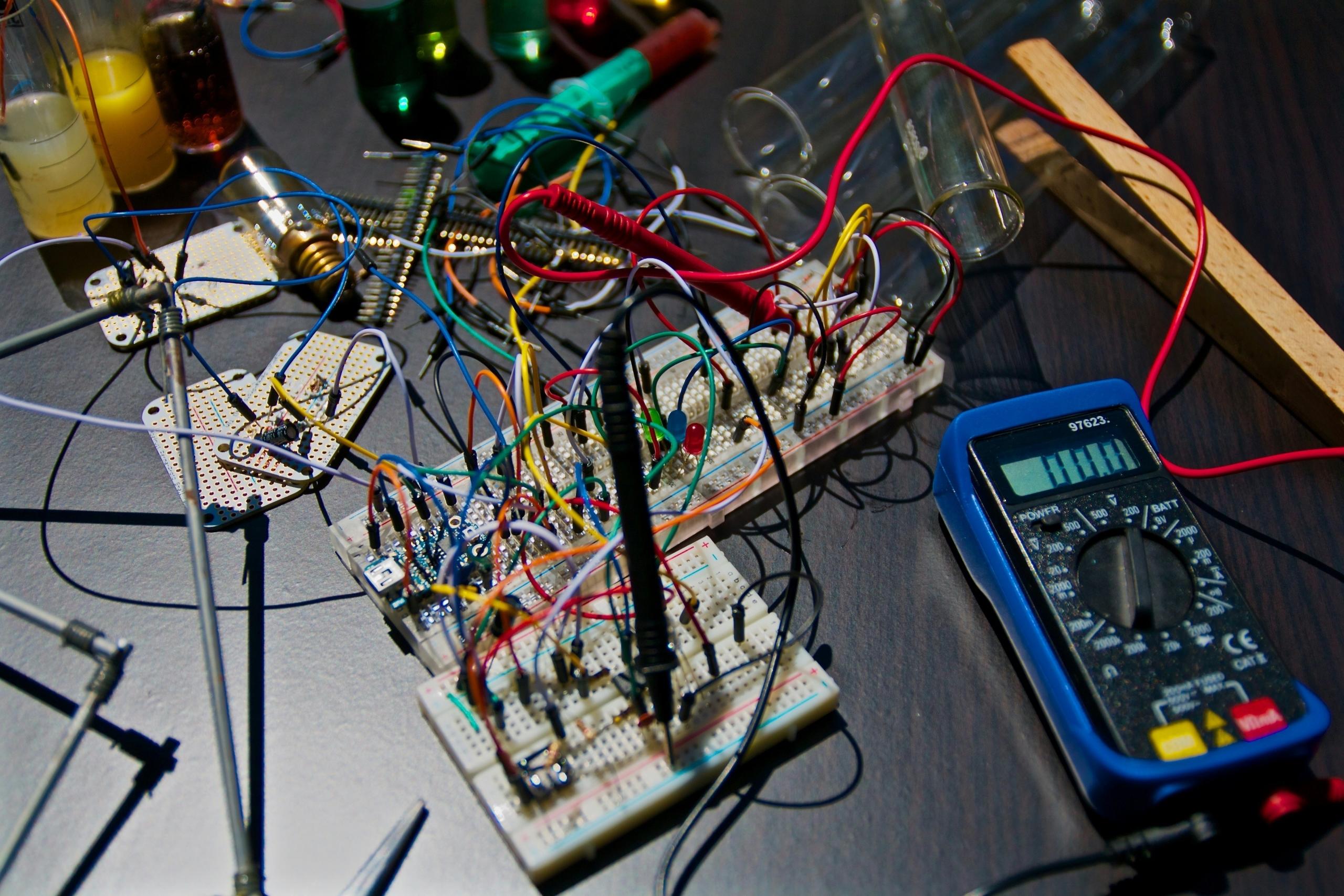We need electrical engineers because they are the brains behind the technology we use every day. It is thanks to them that our homes have power, that phones and computers work, and that there is hope for renewable energy solutions. As technology, and indeed the world, keeps evolving, electrical engineers are more important than ever in creating innovative solutions that improve our lives and address global challenges. As a career, electrical engineering is one that makes a real difference in the world.
So, if you are asking, where can I study electrical engineering in South Africa, or want to know more about the requirements to study electrical engineering in South Africa, you are in the right place. In this article, we will answer those questions as well as look at what is electrical engineering in a world challenged by sustainability?

What is Electrical Engineering Today?
Electrical engineering is all about designing and working with systems that use electricity, from simple circuits to complex power grids and communication networks. This field involves everything from generating and distributing electricity to creating electronic devices and systems that control various processes.
Importantly, today, electrical engineering drives sustainability by developing renewable energy technologies, enhancing energy efficiency, and creating eco-friendly power systems. In short if you are looking for a meaningful career, electrical engineering can contribute to a greener, more sustainable future for our planet.
Why Study Engineering in South Africa?
There are possibly more reasons to study engineering in South Africa than ever before. Firstly, there is a high demand for electrical engineers in South Africa due to the country's need to improve and expand its energy infrastructure. With frequent power shortages and the push towards renewable energy sources, skilled engineers are essential for designing and implementing reliable power systems.

In addition, the growth in telecommunications, automation, and technology sectors requires expertise in electrical engineering to innovate and maintain advanced systems. As South Africa aims to modernise its infrastructure and boost economic development, electrical engineering jobs will continue to drive these initiatives making them highly sought after in the job market.
Now that you know more about what electrical engineering is, you may want to know about the requirements to study electrical engineering in South Africa.

Requirements to Study Electrical Engineering in South Africa
Like all professionalised industries there are certain requirements to study electrical engineering in South Africa.
Most universities require a National Senior Certificate (NSC) or an equivalent qualification with a high pass rate in mathematics and science subjects as these subjects are critical for understanding engineering principles. For example, a minimum mark of 60-70% in both mathematics and physical sciences is often required.
In addition, universities may require above average marks for English and other subjects and some institutions even conduct entrance exams or interviews as part of the admission process.
But beyond the academic requirements to study electrical engineering in South Africa, you will need a genuine interest in technology, problem-solving, and innovation. One way to test this out is to ensure practical experience or exposure to technical projects during high school.
By ensuring these requirements, you will be set up for the rigorous coursework in electrical engineering which includes subjects like circuit theory, electromagnetics, control systems, and power engineering.
Now, let us look at where to study electrical engineering in South Africa.
Where to Study Electrical Engineering in South Africa
When it comes to where to study electrical engineering in South Africa, South Africa is home to several prestigious universities that offer robust electrical engineering programmes. Here’s an overview of some of the top institutions and their unique attributes to address what is electrical engineering in a world that is challenged by sustainability.

- University of Cape Town (UCT): UCT’s Department of Electrical Engineering is renowned for its research and innovation. In short, the programme emphasises a strong theoretical foundation, combined with practical experience. The curriculum includes courses in circuit theory, electronics, electromagnetics, digital systems, control systems, and power engineering, however UCT also offers specialised courses in renewable energy and telecommunications.
- Stellenbosch University: Stellenbosch University is also known for its strong emphasis on both theoretical and applied engineering. The undergraduate programme covers fundamental topics like electric circuits, signal processing, microelectronics, and computer systems. It also provides opportunities for students to engage in research and development projects, particularly in the fields of renewable energy and automation.
- University of the Witwatersrand (Wits): Wits offers a comprehensive electrical engineering programme that combines rigorous academic training with hands-on experience. The curriculum includes modules on electronic circuits, power systems, communication systems, and digital signal processing. Wits is particularly noted for its research facilities and industry partnerships, which also provide students with opportunities for internships and real-world project experience.
- University of Pretoria (UP): The University of Pretoria's electrical engineering programme is designed to produce graduates who are capable of tackling complex engineering challenges. The curriculum covers foundational subjects like electrical circuits, systems and signals, digital logic design, and power electronics. UP also offers elective courses in specialised areas such as telecommunications, control systems, and renewable energy technologies.
- University of KwaZulu-Natal (UKZN): UKZN’s programme focuses on providing a balanced education with a mix of theoretical knowledge and practical skills. Core courses include circuit analysis, digital systems, electromagnetics, and power engineering. UKZN also offers a strong focus on research, particularly in the areas of power systems and electronic design.
Now that we have answered your question where can I study electrical engineering in South Africa, here is a more in-depth look at what you can expect from the curriculum.
Broad Outline of the Undergraduate Electrical Engineering Curriculum
The undergraduate electrical engineering curriculum in South African universities typically spans four years of study that comprise:
- First Year: Encompasses an introduction to engineering principles, mathematics, physics, chemistry, and basic computer programming. Courses focus on building a solid foundation in these essential areas.
- Second Year: Focused on core electrical engineering courses such as circuit theory, signals and systems, electronics, digital logic design, and advanced mathematics. Practical laboratory sessions are also integrated to provide hands-on experience.
- Third Year: Advanced topics like electromagnetics, control systems, communication systems, microelectronics, and power engineering are tackled while students also begin to engage in design projects and research.
- Fourth Year: A year of specialised elective courses based on students' interests, such as renewable energy, telecommunications, automation, and robotics. The final year typically includes a major design project, where students apply their knowledge to solve real-world engineering problems.
In summary, South African universities offer diverse and comprehensive electrical engineering programmes designed to equip students with the knowledge and skills needed for a successful career in the field. Remember that each institution has its unique strengths and provides various opportunities for specialisation and practical experience.
Excellent universities aside, can you study engineering online?
But Can You Study Engineering Online?

In answer to the growing demand for flexible learning options, many universities and educational platforms now offer online electrical engineering programmes and courses. These programmes often cover the same curriculum as traditional in-person programmes which include foundational subjects like circuit theory, electronics, control systems, and power engineering.
Students might choose to study electrical engineering online for several reasons:
- Flexibility: Online programmes allow students to learn at their own pace and schedule, making it easier to balance studies with work, family, or other commitments.
- Accessibility: For those living in remote areas or regions without access to quality educational institutions, online learning provides an opportunity to pursue a degree from reputable universities without the need to relocate.
- Cost-Effectiveness: Online programmes can be more affordable than traditional on-campus programmes, as they often eliminate costs associated with commuting, housing, and campus facilities.
- Customisation: Online learning platforms often provide a range of elective courses and specialisations that allow students to tailor their education to their specific interests and career goals.
- Technological Proficiency: Studying online helps students become proficient with digital tools and platforms, a valuable skill in the modern engineering landscape.
One note of cautionary advice is that while online programmes offer many benefits, prospective students should ensure the programme is accredited and provides sufficient practical experience through virtual labs or on-site residencies.
Can you study engineering online? Absolutely!
However you decide to tackle it, consider the support of a private electrical engineering tutor who can guide you through the more challenging aspects of your programme and help you to reach your goals.
If you are interested in studying electrical engineering in South Africa, then we hope this article has answered your questions.
















